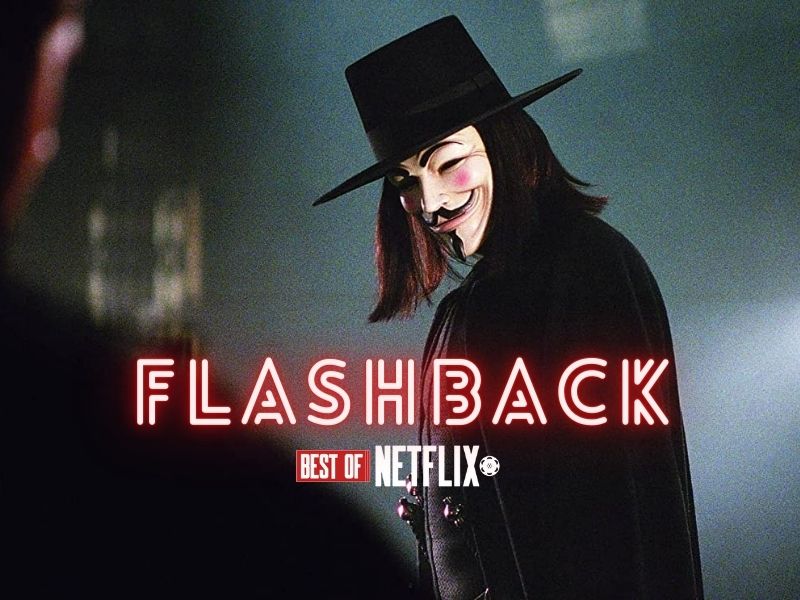In our latest instalment of Netflix Flashback, we are turning our heads back to 2005 as we re-watch the utterly brilliant V For Vendetta starring, among others, the wonderful Natalie Portman.
Just like the money-grabbing opportunity of a Christmas hit song, a movie that ties into an annual holiday has the ability to generate money year on year and become ubiquitous with a particular day as a result. Films like Jon Favreau’s Christmas favourite Elf, John Carpenter’s ingeniously titled Halloween and the frankly insultingly named Valentine’s Day have each capitalised on their respective holidays, seeing annual interest no matter how many times the viewer has already seen the film.
For such a profitable business model, it’s a surprise the same hasn’t been done with Guy Fawkes Night, with the only film of any real note about the explosive day being 2005’s V for Vendetta. A commemorative day created to recognise the failed ‘Gunpowder Plot’ to blow up the English Houses of Parliament in 1605, Guy Fawkes Night is largely a day celebrated only in the UK, though many other countries also recognise similar festivals.
Set in a dark dystopia of Great Britain’s future, V for Vendetta follows a cloaked freedom fighter known only as ‘V’ who plots to overthrow the government with the help of a young woman named Evey (Natalie Portman). Written by the Wachowski sisters, the pair wrote the screenplay for the film before the release of The Matrix in 1999, before offering the script to the director James McTeigue whilst in the post-production of their own mammoth sci-fi project.
Released to critical indifference and acclaim in the realm of popular culture, V for Vendetta embodied the true spirit of Guy Fawkes night, depicting a struggle between freedom and the state. Drawing stark imagery from classic tales of fact and fiction, McTeigue’s film borrowed iconography from the Third Reich and the Soviet Union under Stalin as well as George Orwell’s classic novel 1984, to which the film owes a great deal.
Cleverly tying itself in with the literature of the past, V for Vendetta is intrinsically linked to Orwell’s novel, using much of the same imagery, as well as cleverly casting John Hurt as the oppressive ‘Big Brother’ as the Under-Secretary for Defence. Itself based on a graphic novel by Alan Moore, McTeigue’s film draws together inspiration from the past to modernise the story of Guy Fawkes and tell a deeply pertinent tale.
In contemporary times V for Vendetta has swollen to represent something far more than a throwaway action film, with anarchists and other anti-government groups adopting the film as an allegory of oppression by the government. As David Lloyd, the illustrator behind the original graphic novel states in an interview with BBC News, “The Guy Fawkes mask has now become a common brand and a convenient placard to use in protest against tyranny—and I’m happy with people using it, it seems quite unique, an icon of popular culture being used this way”.
Whilst there have certainly been bigger and more financially successful films throughout the 21st century, V for Vendetta has had a pertinent cultural impact that refuses to be extinguished. Continuing the spirit of the original ‘Gunpowder Plot’ from Guy Fawkes, the film stands as a protest against governmental control. As director James McTeigue stated in the production notes, “We felt the novel was very prescient to how the political climate is at the moment. It really showed what can happen when society is ruled by government, rather than the government being run as a voice of the people. I don’t think it’s such a big leap to say that things like that can happen when leaders stop listening to the people”.
